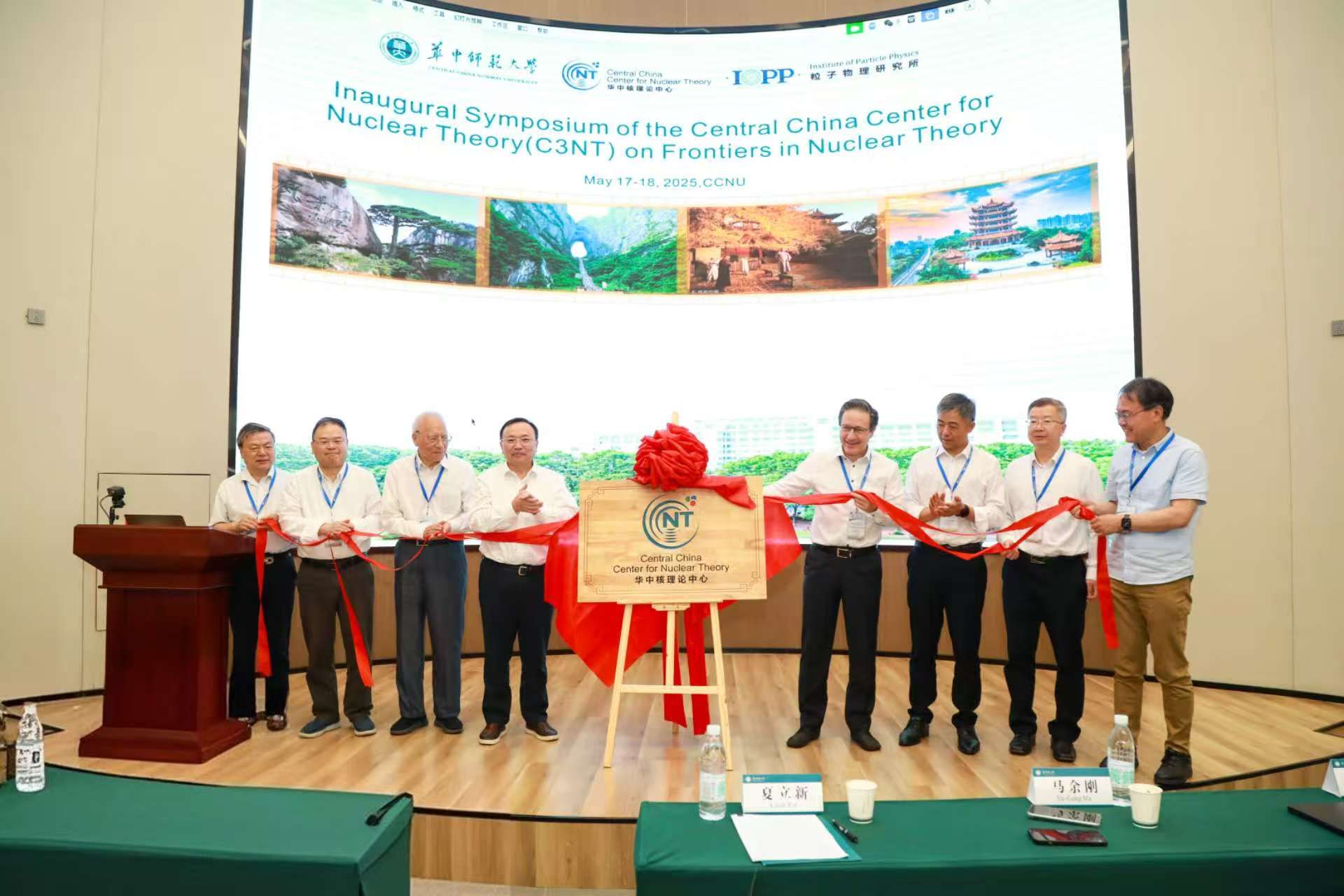From May 17th to 18th, the Inauguration Ceremony of the Central China Center for Nuclear Theory (C3NT) and the International Symposium on Frontiers of Nuclear Theory were successfully held at Central China Normal University (CCNU). More than 100 experts and scholars from China, the United States, Germany, France, Poland, Japan, South Korea, and other countries gathered in Wuhan to discuss cutting-edge hotspots in nuclear theory and explore strategies for international collaboration in the field.

In his opening remarks, Professor Xia Lixin, Secretary of the CCNU Party Committee, emphasized the pivotal role of fundamental science in advancing human civilization and progress. He highlighted nuclear and theoretical physics as key disciplines for unraveling cosmic mysteries, driving technological progress, and addressing national strategic needs. As a "Double First-Class" university, CCNU has long prioritized physics research. Since establishing the Institute of Particle Physics (IOPP) in 1977, the university has achieved internationally recognized breakthroughs in high-energy nuclear matter, hadron physics, and related fields.
Professor Wang Xinnian, director of C3NT, introduced the historical background and future plans of the Center. Building upon the academic foundation of IOPP, C3NT integrates key research platforms including the Ministry of Education's Key Laboratory of Quark and Lepton Physics, the Ministry of Science and Technology's International Joint Research Center for Quark Matter and Detection Technology, the Silicon Pixel Laboratory (PLAC), and the Nuclear Science Computing Center (NSC3). The center will focus on nuclear structure, extreme nuclear matter, hadron physics, and nuclear astrophysics, with the mission to create an open international academic platform that drives pioneering scientific breakthroughs and cultivates top-tier talent in nuclear theory.
The symposium witnessed strong commitments to international collaboration from leading global institutions. Professor Sanjay Reddy, Director of the U.S. Institute for Nuclear Theory (INT), and Professor Bira van Kolck, Director of the European Centre for Theoretical Nuclear Physics and Related Areas (ECT) in Italy, both expressed enthusiastic support for future cooperation with C3NT. Professor Urs Wiedemann, incoming head of the Theoretical Physics Department at CERN (European Organization for Nuclear Research), emphasized that C3NT’s establishment marks a significant milestone not only for CCNU but also for the global advancement of nuclear theory research.
The two-day event featured 20 keynote lectures by leading experts, with in-depth discussions covering extreme nuclear matter and heavy-ion collisions, nuclear structure and astrophysics, as well as AI applications in nuclear physics. The symposium also included the official unveiling ceremony of C3NT, followed by meetings of its Board of Directors and Scientific Advisory Committee, where participants finalized plans for the 2026 symposium and approved regional collaborative project blueprints.
Looking ahead, C3NT will serve as a strategic hub based in Wuhan, collaborating closely with universities across central China and international partners. The center will organize various academic activities including the annual QCD CCNU Lecture Series, long-term and short-term workshops, and Asia-Pacific nuclear theory conferences. These initiatives aim to enhance global academic exchanges, bridge theoretical and experimental research, and drive innovation in the field of nuclear physics.




